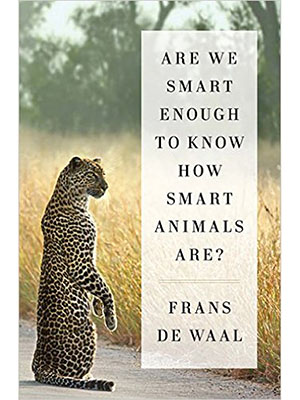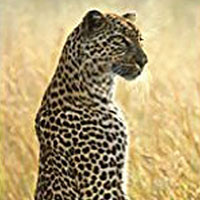Monday, October 1, 7 p.m., Sea View Theatre
— from Justin Cox —
 Animals like killer whales, harbor seals, crows, and ravens – long-lived species that we all consider to be intelligent, surround us. But can we say scientifically how smart these animals are? The SeaDoc Society, with support from the Carper Foundation, will host a free talk at the Sea View Theatre on Monday, October 1st with acclaimed scientist and New York Times bestselling author Frans de Waal. Doors will open at 6:30 and the event starts at 7 p.m., and will include a meet-and-greet and book sales and signing thanks to Darvill’s Bookstore.
Animals like killer whales, harbor seals, crows, and ravens – long-lived species that we all consider to be intelligent, surround us. But can we say scientifically how smart these animals are? The SeaDoc Society, with support from the Carper Foundation, will host a free talk at the Sea View Theatre on Monday, October 1st with acclaimed scientist and New York Times bestselling author Frans de Waal. Doors will open at 6:30 and the event starts at 7 p.m., and will include a meet-and-greet and book sales and signing thanks to Darvill’s Bookstore.
De Waal’s 2016 book, Are We Smart Enough to Know How Smart Animals Are?, explores the oddities and complexities of animal cognition—in crows, dolphins, parrots, sheep, wasps, bats, chimpanzees, and bonobos—to reveal how smart animals really are, and how we’ve underestimated their abilities for too long.
Did you know that octopuses use coconut shells as tools, that elephants classify humans by gender and language, and that there is a young male chimpanzee at Kyoto University whose flash memory puts that of humans to shame? Fascinating, entertaining, and deeply informed, de Waal’s landmark work will convince you to rethink everything you thought you knew about animal—and human—intelligence.
The free event is being hosted by the SeaDoc Society and is sponsored by Dan and Margie Carper. Refreshments and snacks will be available for purchase at the Sea View snack bar.
“An entertaining, convincing case for assessing each species’ intelligence on its own terms….not only full of information and thought-provoking, it’s also a lot of fun to read.” — Nancy Szokan, Washington Post
“Walks us through research revealing what a wide range of animal species are actually capable of…[I]t all deals a pretty fierce wallop to our sense of specialness.” — Jon Mooallem, New York Times Book Review
“A beautifully written and delightfully conceived popular science book, written by an eminent researcher who has dedicated his career to making the general public aware of just how smart animals are.” — Nicola Clayton, Science
**If you are reading theOrcasonian for free, thank your fellow islanders. If you would like to support theOrcasonian CLICK HERE to set your modestly-priced, voluntary subscription. Otherwise, no worries; we’re happy to share with you.**








Thank you Joe Gaydos and Seadoc for bringing this fabulous scientist to our community. It was a wonderful demonstration of a very intelligent researcher showing us his expertise. Funny and full of interesting insights. Best speaker I have seen in my 20 plus years here on the island.